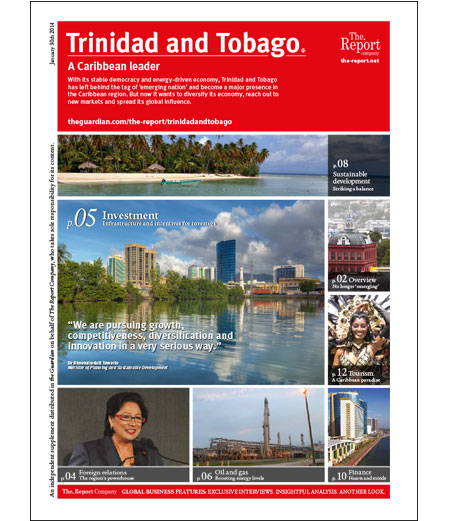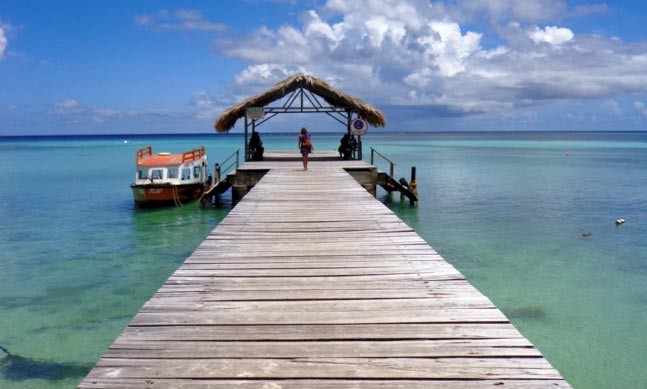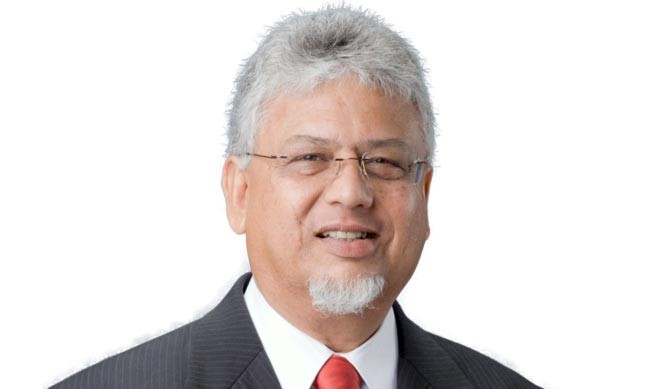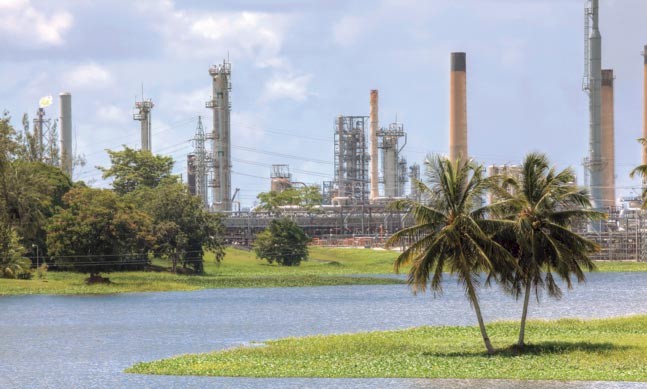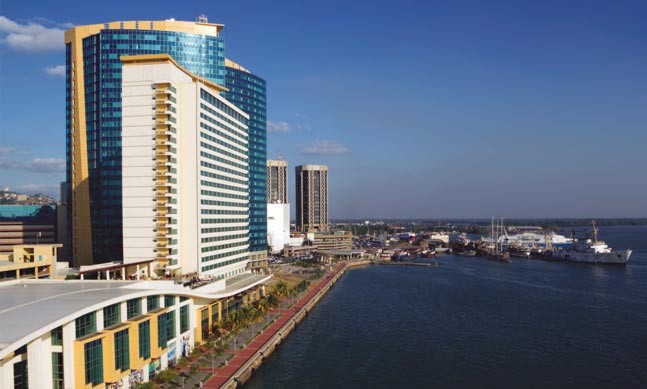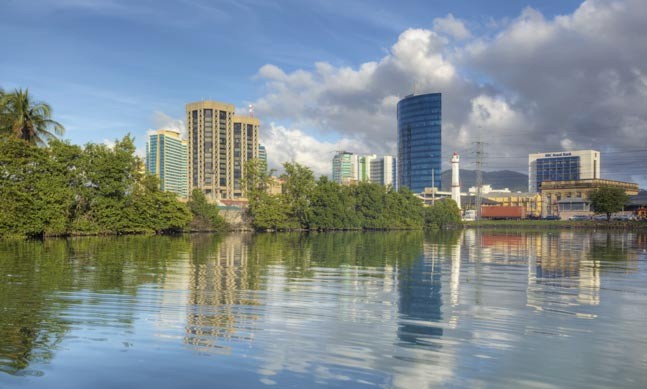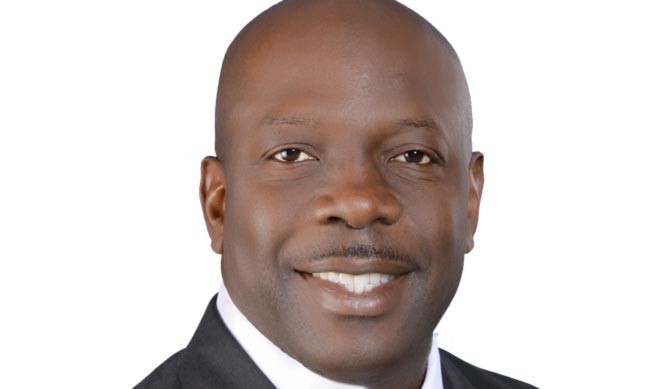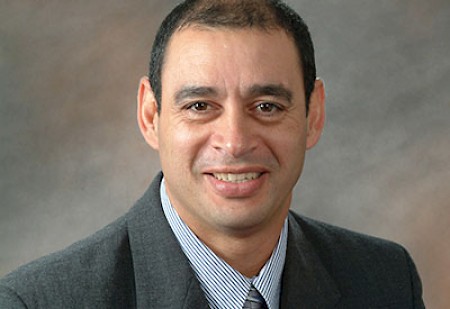
Now in its 22nd year of production, Phoenix Park Gas Processors is one of the largest gas processing facilities in the Americas. CEO Eugene Tiah sat down with The Report Company to share his views on the potential impact of US shale gas on Trinidad and Tobago’s gas sector and his overall appraisal of the country’s energy industry.
The Report Company: What would be your appraisal of the gas industry in Trinidad and Tobago?
Eugene Tiah: The transition took place from an oil to a gas industry in the early 1980s, and a lot of policy positions were put in place with regard to the natural gas industry. That is when the government started investing in that industry. It started as an investment into power generation using gas as a source for the thermal plants and then it progressed to two big investments, one in iron and steel and one in fertiliser and then it was followed by methanol. Those were very important steps at that point in time because the industry didn’t exist before. From that point in time in the 1980s it grew from literally nothing to what it is today.
Today on the island you have about 4.2 billion cubic feet of gas being consumed on a daily basis, and I would say it has somewhat plateaued. Over the last decade there was a huge growth spurt where LNG facilities were developed as well as downstream consuming facilities primarily in the form of anhydrous ammonia and methanol, so the last decade had been phenomenal in terms of the rate of growth.
What we’re seeing now is a plateauing of the industry and it’s driven by a number of factors; one is the ability to sustain production at current levels and the other is what is happening elsewhere globally in terms of the gas industry. Australia for example is a prolific gas producer and exporter, the Middle East is very significant and you see that there are emerging economies where gas reserves are being found, monetised and exploited. In addition, you have the huge developments taking place in North America that are driven by shale gas, so that too is changing the picture with regard to destination opportunities.
The focus right now in Trinidad and Tobago is if we are to continue and sustain what we have, the key is finding additional reserves. The challenge is incentivising and attracting exploration and production companies to invest.
Some indicators are showing positive signs. Last year for example there was a lot of interest expressed in deep water acreage.
TRC: Do you think that Trinidad and Tobago’s framework is open enough to attract foreign investors or do you see the need for reforms?
ET: Trinidad has always been receptive to foreign direct investment. It has a good track record; it’s always been investor friendly. The challenge that Trinidad and Tobago faces is competitiveness in terms of what kind of fiscal terms and conditions are being offered relative to other locations in addition to the price of the natural gas for downstream investment. Upstream companies look at what sort of deal will be struck under the production sharing agreement; will there be considerations for risky investments, how will things be expensed, what sort of taxation regime is there. The government of Trinidad and Tobago in going out in this deep water bid round actually reviewed all of that and made adjustments and some of those changes actually have made it more financially attractive. That is why we saw more interest in bidding on those blocks. Trinidad and Tobago consistently has to be comparing itself through various benchmarking exercises to see where it stacks up relative to other locations.
TRC: How do you see the development of shale gas in the US impacting Trinidad and Tobago?
ET: Trinidad exports LNG and all of the commodities that come out of Point Lisas such as methanol and ammonia. The primary market for these products is the US. So if the US started to produce more of these products domestically then that could displace Trinidad’s products and then what would happen is that they would likely have to go to more distant markets. The question relates to how that will impact the value of the product. For example, if anhydrous ammonia were not to go from here to Tampa but rather to Europe, the freight cost would be much higher.
As recently as about five years ago, more than 60 percent of the imports into the US of LNG came out of Trinidad and Tobago. Today, it’s less than 20 percent because gas prices are low. Instead of the primary market being the US, it now predominantly goes to north-west Europe, Asia and Latin America.
“The focus right now in Trinidad and Tobago is if we are to continue and sustain what we have, the key is finding additional reserves. The challenge is incentivising and attracting exploration and production companies to invest.”Tweet This
TRC: Do you think that producers will move out of Trinidad to the US?
ET: No, but we will likely see the impact in new investment. The bar has been raised and for us to compete for new investment we have to address the gas supply, we have to address gas pricing and we have to do all that within the context of being competitive relative to some of these new locations.
TRC: What are your key products and markets?
ET: We produce three products: propane, butane and what is known in the industry as natural gasoline which is a condensate material similar to naphtha. The first two primarily go into the heating markets. They are sold regionally into the Caribbean and Central America and they end up as a mixed or pure product in the home cooking market. Natural gasoline has three possible markets. It can be used as a blendstock for motor gasoline, it can be used as a feedstock for cracking to produce petrochemicals or it can be used as a diluent for very heavy crude oil to allow it to be pumped easily. Currently it is primarily going into a market in Colombia for diluting very heavy crude.
TRC: Are you looking to expand into foreign markets?
ET: Our markets are growing at such a rate that they consume all of our production so we don’t have a need to look elsewhere. Our interests would be in taking our business model, our abilities and capabilities and replicating this elsewhere into new markets. We have been looking at other emerging countries to see if we can do a similar type of business that we do here.
We’ve been looking at a few locations; we’ve had some visits to Colombia to understand the gas markets there and see what opportunities exist. We’ve been to emerging locations like Suriname and French Guiana, and we’ve been to locations in Africa such as Ghana and Nigeria, and East Africa.
TRC: There is interest in building a gas processing facility in Tobago. If this were to go ahead, how would this impact on your operations?
ET: We would want to be the processor of choice. There is a project which has been on the drawing board for some time, the eastern Caribbean gas pipeline project, and the intent is to take gas from Trinidad to Barbados and then further up the islands to Guadeloupe and Martinique. We are engaged with this right now and are looking at how to process and condition the gas to go into the pipeline. If the project were to go forward it would mean putting a small processing plant in Tobago.
TRC: What is the main goal that you want to achieve as president of the company?
ET: Given the fact that the industry is plateauing or even going to decline, my goal is to continue to grow the business. We have experienced significant growth over the last decade in the business: as the downstream industry grew, we grew. We now need to sustain that growth over the next decade. I see opportunities in looking internationally, looking how we take this business model and go to other locations and deliver value. We want of course to retain operations here as a strong healthy vibrant business, continuing to grow as the industry grows, but what we’re not doing is pegging our future only to this location. We’re saying that there could be scenarios that either plateau or decline and we want to continue over the trajectory we have had over the last decade. We know how to assimilate knowledge and expertise and to transfer it and we know how to run a world-class business.


